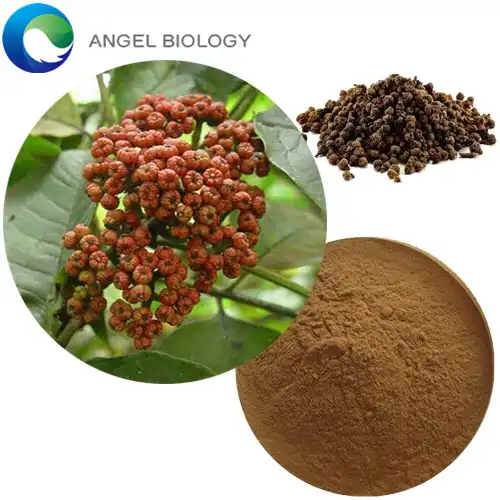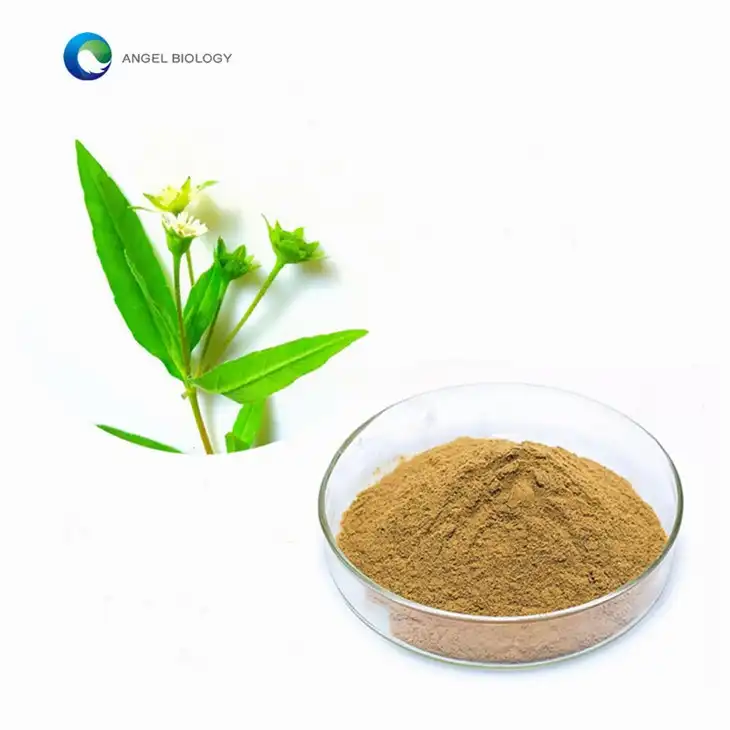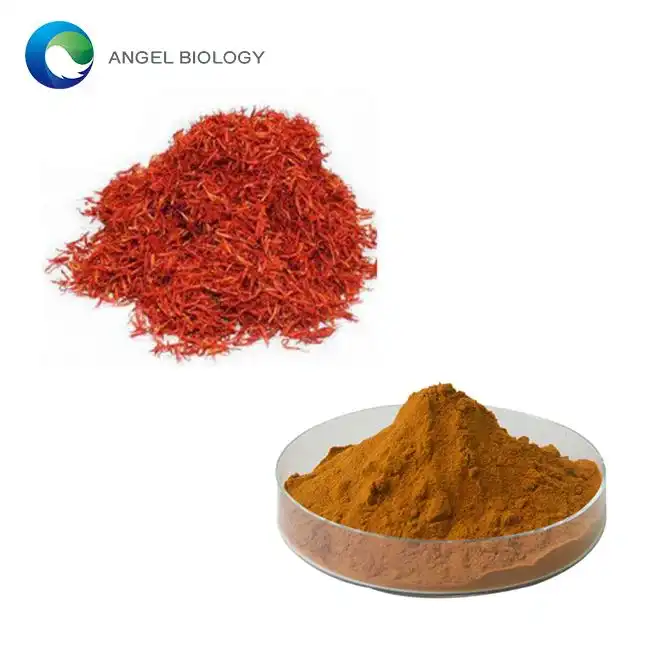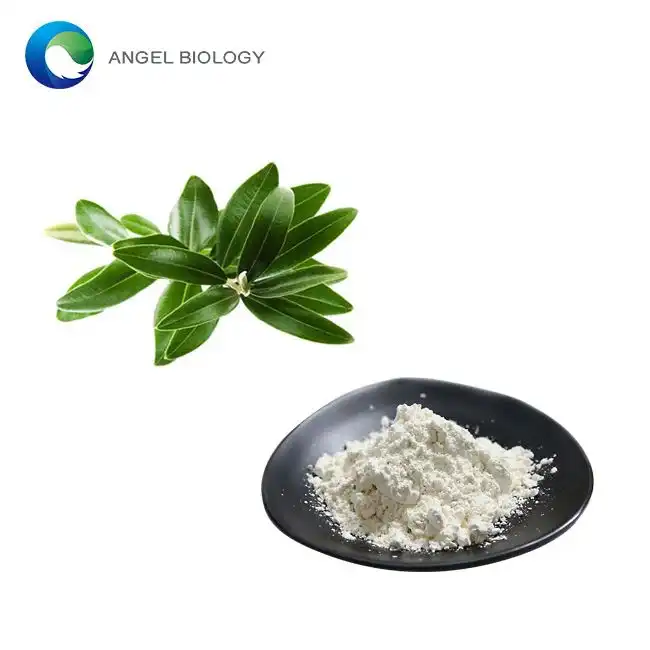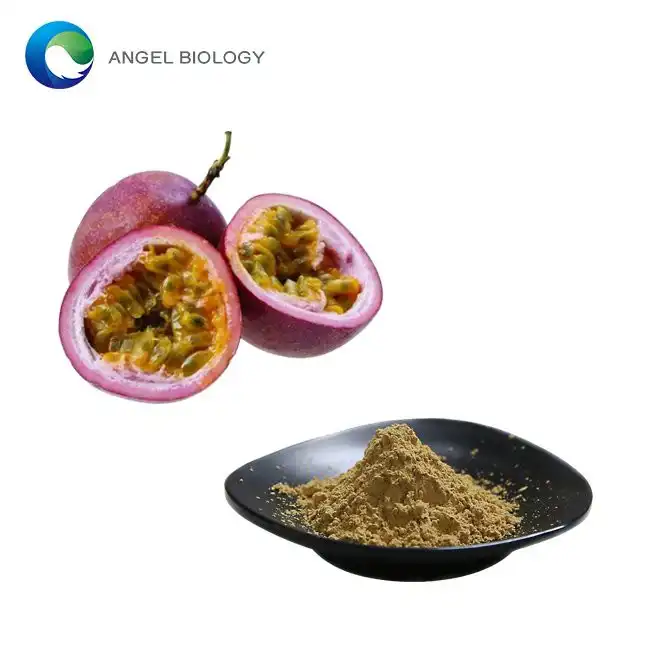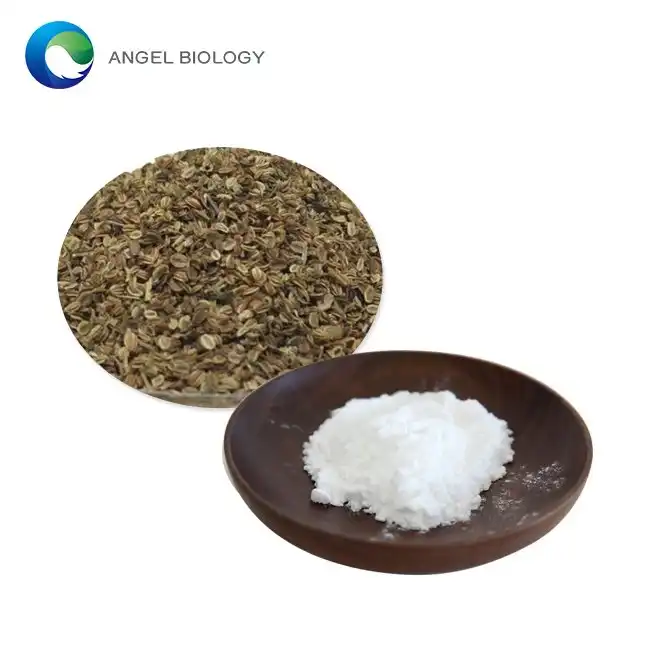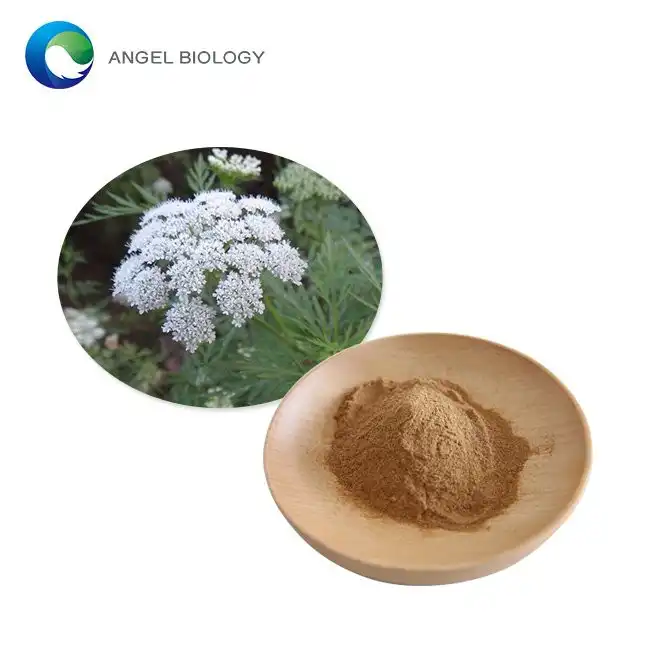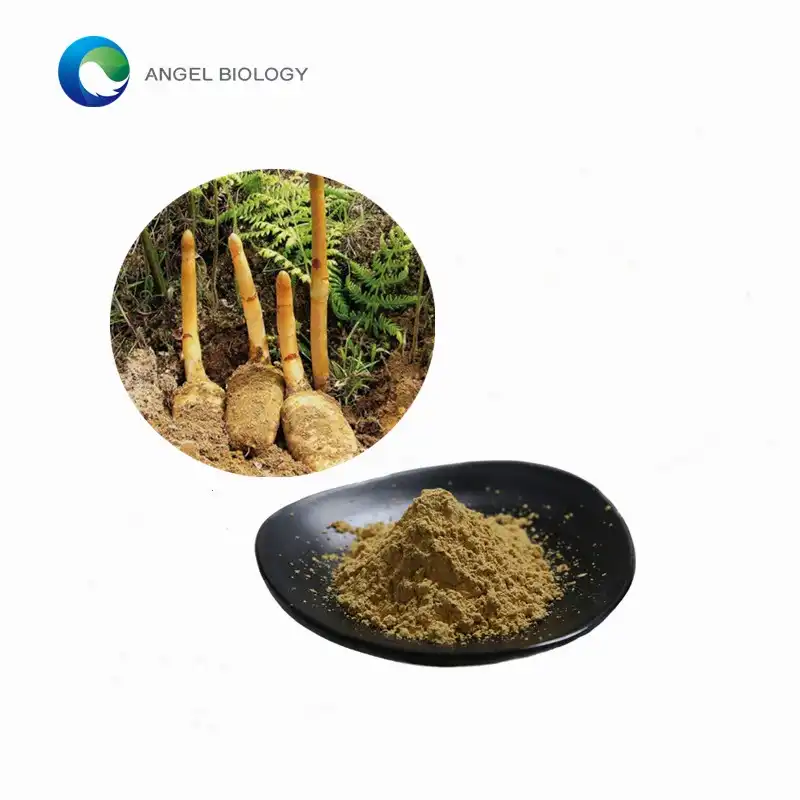Soy Lecithin Powder is gaining momentum in the food industry as a versatile, natural ingredient prized for its emulsifying and stabilizing properties. This bioactive component, rich in phospholipids and fatty acids, offers manufacturers innovative solutions to improve texture, extend shelf life, and enhance nutritional profiles of various products. In 2025, its applications transcend traditional roles, becoming integral in health foods, nutritional supplements, and clean-label formulations. Understanding these diverse uses could unlock new potential for your product line.
Emulsification and Texture Enhancement in Processed Foods
Soy lecithin powder plays a pivotal role as a natural and highly effective emulsifier in processed foods, enabling the stable integration of oil and water phases. This functionality is crucial for products such as margarine, sauces, salad dressings, chocolate, and various baked goods, where uniform texture and creamy mouthfeel are key quality indicators. By forming microemulsions, lecithin prevents ingredient separation, ensuring consistent product performance over shelf life. The presence of phospholipids in soy lecithin not only enhances emulsification but also improves the dispersion of flavors, colors, and fat-soluble nutrients, contributing to superior sensory and nutritional properties. Its use allows manufacturers to reduce reliance on synthetic additives, catering to the rising demand for clean-label, non-GMO, and allergen-free food formulations.
In plant-based and dairy substitute products, soy lecithin ensures smooth, homogenous textures in alternatives like soy milk, almond milk, vegan creams, and non-dairy cheeses. Beyond texture, it promotes nutrient bioavailability, particularly for fat-soluble vitamins such as A, D, E, and K, making it an important ingredient for functional foods and nutritional supplements. By leveraging lecithin’s emulsifying power, food manufacturers can achieve a premium, consumer-friendly product that aligns with both quality expectations and modern health-conscious trends, while maintaining process efficiency and stability across diverse production environments.

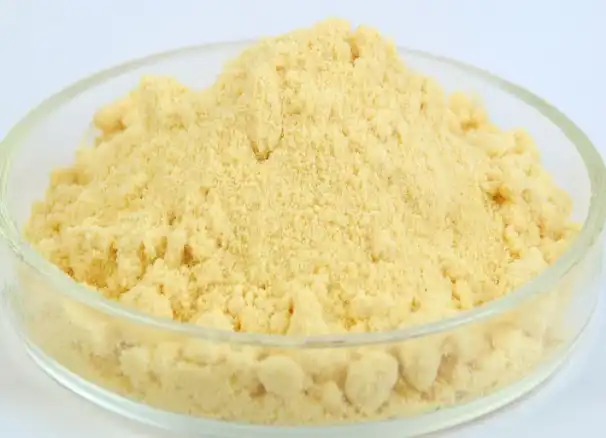
Shelf-Life Extension Through Food Stabilization
Lipid oxidation presents a significant challenge in food production, particularly in products rich in oils and fats, as it leads to rancidity, off-flavors, and undesirable changes in color and texture. Soy lecithin powder serves as an effective food stabilizer and natural antioxidant, helping to mitigate these oxidative reactions and extend the shelf life of a wide range of products. By forming protective emulsions around lipid molecules, lecithin slows the degradation of fats and oils, maintaining product quality over prolonged storage. This makes it especially valuable for manufacturers of baked goods, snacks, chocolate, spreads, and other perishable items seeking to minimize reliance on synthetic preservatives while preserving sensory appeal.
Beyond taste and appearance, soy lecithin contributes to the preservation of nutritional quality, maintaining the structural integrity of phospholipids and essential fatty acids. This feature is particularly important in functional foods and nutritional supplements, where retention of bioactive compounds is critical to efficacy. By stabilizing lipids and enhancing antioxidant capacity, lecithin powder not only improves product longevity but also ensures that consumers receive consistent flavor, texture, and nutritional benefits. Incorporating soy lecithin thus provides manufacturers with a dual advantage: maintaining high-quality food standards and supporting health-focused product claims through natural stabilization.
Enhancing Nutrient Delivery in Dietary and Nutritional Supplements
Soy lecithin powder is highly valued in the dietary and nutritional supplement industry due to its rich phospholipid profile, which plays a crucial role in enhancing the absorption and bioavailability of fat-soluble vitamins, including A, D, E, and K. By improving how these essential nutrients are delivered and absorbed in the body, lecithin ensures that consumers receive the maximum benefit from each supplement dose. Its emulsifying properties allow fat-soluble compounds to remain stable and evenly distributed within formulations, whether in powders, capsules, or liquid preparations.
Beyond vitamin delivery, the phospholipids in soy lecithin support cellular membrane integrity and overall cell health, making it an important functional ingredient in health-focused products. Additionally, lecithin is a natural source of choline, a nutrient vital for brain function, memory, and cognitive performance. Incorporating soy lecithin into supplements can therefore provide dual benefits: enhancing the effectiveness of other nutrients and supporting neurological health. Manufacturers leverage these properties to create formulations that are both highly bioavailable and aligned with consumer demand for natural, non-synthetic wellness solutions. By integrating soy lecithin powder, supplement producers can increase product efficacy, improve consumer satisfaction, and reinforce their commitment to health-focused innovation.
Functional Additives in Vegan and Plant-Based Foods
The growing global demand for vegan and plant-based products has created a need for natural ingredients that offer multifunctional benefits. Soy lecithin powder serves as an ideal solution, acting as a natural emulsifier and texture enhancer that helps recreate the creaminess and mouthfeel often associated with dairy or egg-based ingredients. Its ability to bind water and lipids ensures that plant-based chocolates, desserts, and meat alternatives maintain a smooth, consistent texture while improving overall product stability and shelf life.
Beyond texture and emulsification, soy lecithin contributes to improved fat dispersion, preventing separation in plant-based beverages and sauces, which enhances both visual appeal and consumer experience. Its non-GMO and allergen-friendly properties make it an attractive choice for clean-label formulations, meeting the strict dietary preferences of vegan consumers. Additionally, the phospholipids in lecithin can support nutrient delivery, allowing plant-based products to retain or enhance the bioavailability of fat-soluble vitamins and functional ingredients. By integrating soy lecithin powder, manufacturers can achieve superior product quality, ensure functional performance across diverse plant-based applications, and align with consumer expectations for natural, sustainable, and high-performing ingredients in vegan foods.
Supporting Flavor and Fragrance Stability in Complex Food Matrices
Beyond its role as an emulsifier, soy lecithin powder is instrumental in protecting and stabilizing flavors and fragrances in complex food systems. Its phospholipid molecules create a protective barrier around volatile compounds, preventing premature degradation, oxidation, or evaporation, which is critical for maintaining product quality over time. This capability ensures that beverages, confections, baked goods, and other processed foods retain their intended aroma, taste, and overall sensory profile from production to consumption, enhancing the consumer experience and satisfaction.
In addition to its applications in food, lecithin’s flavor-stabilizing properties extend to the pharmaceutical and personal care industries. In these sectors, lecithin supports the encapsulation and controlled release of active ingredients, natural flavors, and fragrances, enabling longer shelf life without relying on synthetic stabilizers or harsh chemicals. Its natural origin, non-GMO profile, and compatibility with clean-label formulations make it an attractive choice for manufacturers aiming to meet consumer demand for safe, effective, and sustainable products. By integrating soy lecithin powder, companies can achieve consistent flavor performance, protect sensitive bioactives, and optimize the sensory and functional quality of a wide range of products.
Cholesterol Reduction and Heart Health Benefits in Functional Foods
Soy lecithin powder is increasingly recognized for its potential role in supporting cardiovascular wellness, primarily through its bioactive lipid fractions. These phospholipids contribute to the modulation of blood cholesterol levels by promoting the metabolism and transport of lipids in the body. Regular incorporation of lecithin into functional foods, such as fortified beverages, spreads, and nutritional supplements, provides consumers with a natural, proactive approach to maintaining healthy cholesterol profiles. By supporting the balance of HDL (good) and LDL (bad) cholesterol, lecithin can play a valuable role in reducing cardiovascular risk factors and promoting overall heart health.
Moreover, lecithin’s benefits extend beyond cholesterol management. Its antioxidant properties help protect blood vessels from oxidative stress, while its emulsifying capability enhances the bioavailability of other heart-supportive nutrients, such as omega-3 fatty acids and fat-soluble vitamins. For manufacturers, this multifunctionality allows the development of products that not only deliver functional health benefits but also align with clean-label and plant-based trends. Angelbio’s high-quality, traceable soy lecithin powder ensures that each formulation maintains consistent potency and purity, meeting global standards and providing consumers with reliable, effective heart-supporting functional foods and supplements.
Application in Bakery Products to Improve Dough Quality and Shelf Life
Soy lecithin powder plays a pivotal role in modern bakery formulations, offering multiple functional benefits that enhance both processing and product quality. Its emulsifying properties improve dough handling by reducing stickiness and facilitating uniform mixing, which ensures consistent texture and volume in breads, rolls, and pastries. By strengthening gluten networks, lecithin contributes to better dough elasticity and gas retention during fermentation, resulting in a light, airy crumb and evenly baked products. Additionally, its moisture-retention capabilities help maintain softness and freshness, addressing common issues like dryness and staling.
properties improve dough handling by reducing stickiness and facilitating uniform mixing, which ensures consistent texture and volume in breads, rolls, and pastries. By strengthening gluten networks, lecithin contributes to better dough elasticity and gas retention during fermentation, resulting in a light, airy crumb and evenly baked products. Additionally, its moisture-retention capabilities help maintain softness and freshness, addressing common issues like dryness and staling.
Beyond textural improvements, soy lecithin acts as a natural shelf-life extender. Its ability to stabilize fats and oils slows oxidative degradation and moisture loss, allowing bakery items to remain appealing and palatable for longer periods without relying on artificial preservatives. This makes it especially valuable for organic, vegan, or clean-label products, where consumer expectations for natural ingredients are high. By incorporating high-quality, non-GMO lecithin powder, manufacturers can produce bakery goods that consistently meet quality standards while aligning with contemporary health-conscious and environmentally aware consumer preferences. The combination of improved dough performance, extended shelf life, and alignment with clean-label trends makes soy lecithin a versatile and indispensable ingredient in bakery production.
Conclusion
Soy lecithin powder continues to be a cornerstone ingredient within the evolving food industry, offering multifunctional benefits that address texture, stability, and health demands. Innovators and soy lecithin powder manufacturers can leverage its natural emulsifying, antioxidant, and bioactive properties to meet diverse consumer needs. With a focus on safety, traceability, and quality, products enriched with this lipid-rich extract position themselves strongly in global markets. Angelbio’s expertise and high-grade soy lecithin powder stand ready to help your brand thrive by integrating cutting-edge natural ingredients that align with international standards and consumer expectations.
FAQ
1. Is soy lecithin powder safe for people with soy allergies?
While soy lecithin is derived from soybeans, the allergenic protein content is significantly reduced during processing. However, sensitive individuals should consult product specifications and medical advice, as some residual allergens might remain depending on refining methods.
2. Can soy lecithin powder be used in gluten-free products?
Yes. Soy lecithin itself is gluten-free and helps enhance texture and stability in gluten-free baking by improving dough elasticity and moisture retention.
3. Does soy lecithin powder qualify as a vegan ingredient?
Absolutely. As a plant-derived emulsifier and food additive, soy lecithin powder is suitable for vegan formulations and widely used in plant-based foods.
4. What nutritional benefits does soy lecithin provide?
It offers phospholipids essential for cell membrane function, fatty acids important for cardiovascular health, and choline, which is relevant for cognitive function.
5. How does soy lecithin improve the bioavailability of nutrients?
By forming micelles with lipids and fat-soluble vitamins, lecithin increases their solubility and absorption rates in the digestive tract.
Where to Buy Soy Lecithin Powder?
Supplying high-quality, traceable soy lecithin powder tailored for health foods, supplements, cosmetics, and more is Angelbio’s specialty. Our commitment to innovation and purity ensures every batch meets rigorous safety and quality benchmarks. For inquiries or custom needs regarding soy lecithin powder, please contact us at angel@angelbiology.com. For details, please refer to the website: angelbiology.com.
References
1. Williams, P. A., & O. Chrzanowski. (2022). Phospholipids in Food Technology: Properties and Applications. Food Chemistry Journal.
2. Johnson, M., & Smith, D. (2023). Emulsifiers in Plant-Based Food Systems: Functional Roles and Regulatory Aspects. International Journal of Food Science.
3. National Institute of Health. (2021). Dietary Supplements and Bioavailability: The Role of Soy Lecithin. Journal of Nutritional Biochemistry.
4. European Food Safety Authority (EFSA). (2024). Safety Assessment of Soy Lecithin as a Food Additive. EFSA Journal.
5. Lee, Y., & Park, H. (2023). Antioxidant Activities of Soy Phospholipids in Lipid-Rich Food Products. Journal of Agricultural and Food Chemistry.
6. Global Food Innovation Summit Proceedings. (2025). Clean Label Ingredients and Natural Emulsifiers in the Global Market.



